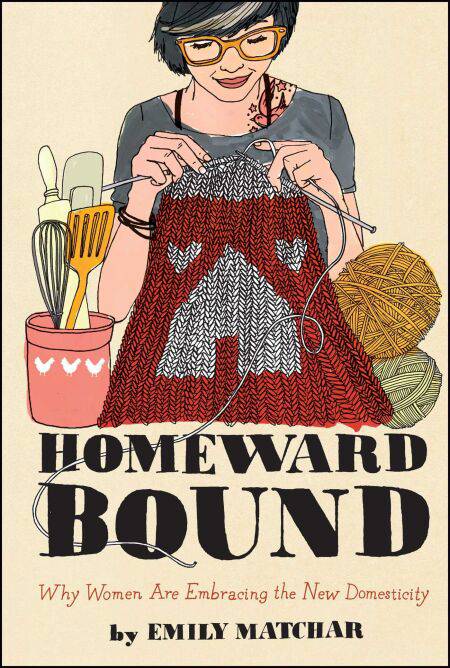
- Afhalen na 1 uur in een winkel met voorraad
- Gratis thuislevering in België vanaf € 30
- Ruim aanbod met 7 miljoen producten
- Afhalen na 1 uur in een winkel met voorraad
- Gratis thuislevering in België vanaf € 30
- Ruim aanbod met 7 miljoen producten
Zoeken
€ 16,76
+ 16 punten
Uitvoering
Omschrijving
Emily Matchar offers a smart, measured investigation into the cultural, social, and economic implications of a return to domesticity in this fascinating book “chock-full of historical context, strong research and compelling personal stories” (Christian Science Montor).
Amid today’s rising anxieties—the economy, the scary state of the environment, the growing sense that the American Dream hasn’t turned out to be so dreamy after all—a groundswell of women (and more than a few men) are choosing to embrace an unusual rebellion: domesticity. A generation of smart, highly educated young people are spending their time knitting, canning jam, baking cupcakes, gardening, and more (and blogging about it, of course), embracing the labor-intensive domestic tasks their mothers and grandmothers eagerly shrugged off. They’re questioning whether regular jobs are truly fulfilling and whether it’s okay to turn away from the ambitions of their parents’ generation.
How did this happen? And what does it all mean? In Homeward Bound, acclaimed journalist Emily Matchar takes a long, hard look at both the inspiring appeal and the potential dangers of this trend she calls the New Domesticity, exploring how it could be reshaping the role of women in society and what the consequences may be for all of us.
This groundbreaking reporting on the New Domesticity is guaranteed to transform our notions of women in today’s society and add a new layer to the ongoing discussion of whether women can—or should—have it all.
Amid today’s rising anxieties—the economy, the scary state of the environment, the growing sense that the American Dream hasn’t turned out to be so dreamy after all—a groundswell of women (and more than a few men) are choosing to embrace an unusual rebellion: domesticity. A generation of smart, highly educated young people are spending their time knitting, canning jam, baking cupcakes, gardening, and more (and blogging about it, of course), embracing the labor-intensive domestic tasks their mothers and grandmothers eagerly shrugged off. They’re questioning whether regular jobs are truly fulfilling and whether it’s okay to turn away from the ambitions of their parents’ generation.
How did this happen? And what does it all mean? In Homeward Bound, acclaimed journalist Emily Matchar takes a long, hard look at both the inspiring appeal and the potential dangers of this trend she calls the New Domesticity, exploring how it could be reshaping the role of women in society and what the consequences may be for all of us.
This groundbreaking reporting on the New Domesticity is guaranteed to transform our notions of women in today’s society and add a new layer to the ongoing discussion of whether women can—or should—have it all.
Specificaties
Betrokkenen
- Auteur(s):
- Uitgeverij:
Inhoud
- Aantal bladzijden:
- 288
- Taal:
- Engels
Eigenschappen
- Productcode (EAN):
- 9781451665468
- Verschijningsdatum:
- 6/05/2013
- Uitvoering:
- E-book
- Beveiligd met:
- Adobe DRM
- Formaat:
- ePub

Alleen bij Standaard Boekhandel
+ 16 punten op je klantenkaart van Standaard Boekhandel
Beoordelingen
We publiceren alleen reviews die voldoen aan de voorwaarden voor reviews. Bekijk onze voorwaarden voor reviews.








